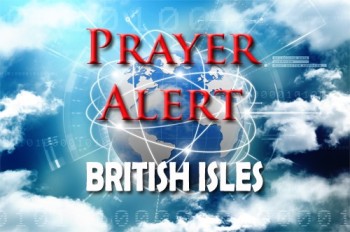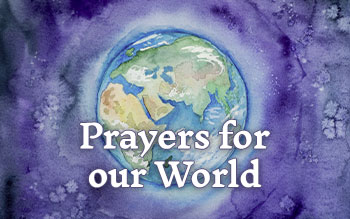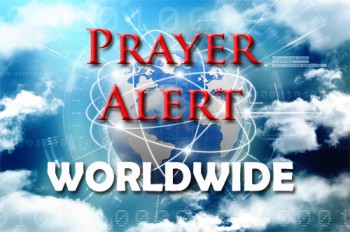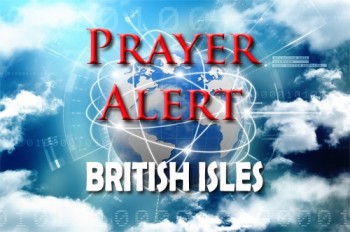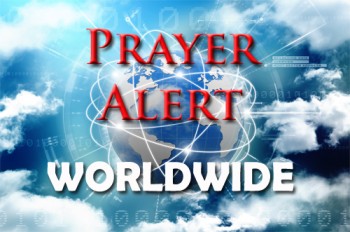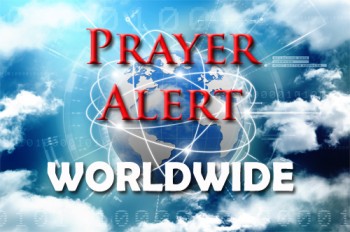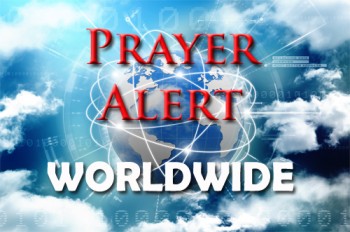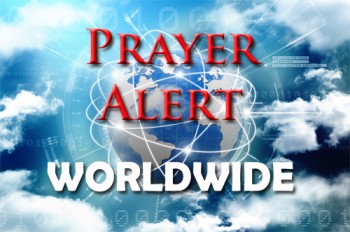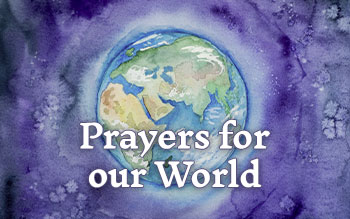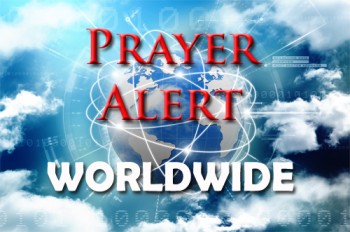
Displaying items by tag: Hong Kong
Hong Kong arrivals
Rev Dave Young (Chinese name Ho Ming Lun), vicar of two churches in London, recently took part in the launch of the Teahouse - a network of clergy and ordinands across the CofE with a Chinese heritage. It began in 2020 with a WhatsApp group and Zoom meetings. The Archbishop of York said he is ‘delighted to see the formal launch of the Teahouse group’. The launch of the Teahouse comes as thousands of British overseas passport holders from Hong Kong are arriving in the UK. Rev Young said, ‘With the arrival of many Hong Kongers over recent months, it is important that the Church welcomes them to our communities and churches. On 13 December he welcomed over 70 new Hong Kong arrivals to a special welcome event at his church with spreads of Chinese and British food shared among the families
Hong Kong: A year on from the imposition of the National Security Law
With each passing day, the boundary between Hong Kong and the rest of China fades faster.
The Chinese Communist Party is remaking this city, permeating its once vibrant, irreverent character with ever more overt signs of its authoritarian will. The very texture of daily life is under assault as Beijing moulds Hong Kong into something more familiar, more docile.
Residents now swarm police hotlines with reports about disloyal neighbours or colleagues. Teachers have been told to imbue students with patriotic fervour through 48-volume book sets called “My Home Is in China.” Public libraries have removed dozens of books from circulation, including one about the Rev. Dr. Martin Luther King Jr. and Nelson Mandela.
Under Xi Jinping, China’s leader, the Communist Party has grown tired of Hong Kong’s duelling identities. To the party, they made the city unpredictable, even bringing it to the edge of rebellion in 2019, when anti-government protests erupted.
Now, armed with the expansive national security law it imposed on the city one year ago, Beijing is pushing to turn Hong Kong into another of its mainland megacities: economic engines where dissent is immediately smothered.
The Hong Kong government has issued hundreds of pages of new curriculum guidelines designed to instil “affection for the Chinese people.” Geography classes must affirm China’s control over disputed areas of the South China Sea. Students as young as 6 will learn the offenses under the security law.
All of this has led to a wave of emigration. Many Hong Kongers have applied for immigration visas to the United Kingdom through their British National Overseas (BNO) status. According to a report by the Migration Observatory at the University of Oxford in May, 34,000 Hong Kongers have applied to live in the UK in the first three months of 2021, whilst The Times reports that 100,000 people have left in the last 12 months. This is particularly true of families with children who believe that the ‘old’ Hong Kong is now lost.
At the same time, at least three major US tech companies, Facebook, Twitter and Alphabet’s Google, have threatened to leave Hong Kong in protest at planned changes to data-protection laws as the pro-Chinese government cracks down on dissent.
The Asia Internet Coalition (AIC), an industry body backed by the US tech firms, warned Hong Kong’s personal data privacy commissioner that proposed amendments to privacy laws may force its members to stop investing there.
Sources: The Times, Irish Times, New York Times
Pray:
Pray with us for the safety of those who stand against China’s authoritarian rule of Hong Kong
Pray with us for wisdom as families and individuals determine whether to stay of leave
Pray with us for the Church in Hong Kong to remain strong in the face of suppression (Acts 20:28-30)
Hong Kong: press freedom
20 June was the 26th anniversary of the founding of Apple Daily newspaper. The tabloid has been critical of the Hong Kong and Chinese leadership, and on 23 June China announced its closure after raiding their offices and arresting senior staff. Their last publication stated, ‘On the eve of this newspaper’s birthday, both our newspaper and the local press suffered unprecedented blows. 500 police barged into our newsroom, ransacked news materials that have always been strictly protected, snatched over 40 computers, servers, and much news materials. This means that many sources and sensitive materials were taken away. Five of our executives, including CEO Cheung Kim-hung and editor-in-chief Ryan Law were arrested. They were charged and bail rejected, and they don’t know when they will regain freedom. The impact on them and their families are beyond imagination. Searches and arrests are sounding an alarm for the local press freedom at a volume that has never been heard before’. See
Immigration from Hong Kong
Simon Cheng, from the Hong Kong expatriate group in Britain, said his fellow citizens' decisions to come to the UK depend on age, political involvement and career prospects. He agrees with Home Office estimates of hundreds of thousands arriving over the next five years. They include pro-democracy protesters and people dissatisfied with Hong Kong’s political reality. A small survey of Hong Kongers found that those inclined to move to the UK were mostly working professionals, often in fields like financial services. The Home Office estimates that tax receipts from new arrivals, many likely to work in well-paid sectors, suggest a net benefit to government finances of £2.4 to £2.9 billion over five years. This significant movement of people presents opportunities for the Government, but also challenges it to put in place effective support for the less well-off arrivals.
Hong Kong: Christians and Chinese crackdown
Recently, the situation in Hong Kong has changed dramatically. There is great fear that things are not going to settle down or be anywhere like they used to be. On 6 January, over 1,000 police officers raided 73 different locations across the city, arresting 53 politicians, pro-democracy leaders, human rights activists, and others. Chris Patten, Hong Kong's last governor, says that what is happening in the city is nothing short of China's brutal destruction of a free society. The government and the police use many different means to persecute pastors and others. Reports estimate that over 300,000 plan to flee Hong Kong in the coming months. Several pastors have already left, while others have gone underground. The UK will introduce a new visa at the end of January which will give 5.4 million Hong Kong residents the right to come and live in the UK, and eventually become citizens. See
Hong Kong: national security
55 Hong Kong activists and former politicians were arrested for subversion under the controversial national security legislation. They were later released on bail without their passports or travel documents. Next they held a news conference where Fernando Cheung spoke. He is a politician who resigned his seat in protest alongside other pro-democracy lawmakers in November. He believes the authorities will press charges after they have sorted out any evidence they gathered via sweeping search warrants executed by over 1,000 police officers. He said this is an effective way to bar them from seeking asylum. Since the national security law was passed, numerous Hong Kong activists have fled into exile. Many believe police may have allowed the activists to go free on bail to avoid fuelling international criticism. US secretary of state Michael Pompeo called the mass arrests an outrage that demonstrated the Chinese Communist Party’s contempt for its own people and the rule of law.
China: Hong Kong opposition condemned
Beijing’s new laws will disqualify state elected legislators if they support Hong Kong's independence, refuse to acknowledge China's sovereignty, ask foreign forces to interfere in the city's affairs, or in other ways threaten national security. Four legally-elected legislators have been ejected, causing a mass resignation of most of Hong Kong's pro-democracy lawmakers from parliament. This is an ‘open challenge’ to China’s authority. Many now see Hong Kong's limited democracy as in its death throes. The UK government accused China of breaching its commitments to protect Hong Kong's autonomy. They were promised they could keep some unique freedoms for fifty years. Dominic Raab said, ‘Beijing's imposition of new rules to disqualify elected legislators in Hong Kong constitutes a clear breach of the legally binding Sino-British Joint Declaration, breaking its promises again and has undermined Hong Kong's special degree of autonomy.’ The USA called it a move towards one-party dictatorship.
Hong Kong: more arrests ahead of rally
Opposition activist Joshua Wong was arrested over illegal assembly last October and the anti-mask law, which bans people from covering their faces during protests. He spread the news of his arrest via Twitter. Veteran social activist Koo Sze-yiu was also detained in connection with the incident. Referring to a rally planned for National Day, Wong said, ‘The government wants to produce a chilling effect on Hong Kong people in order to frighten people away from the 1 October march. I will continue to resist, and we should also let the world know Hong Kong people will not easily surrender. They can’t censor our commitment to fight for freedom. The chilling effect will not work and is not the way out.’ It is the third time he has been prosecuted since June.
Hong Kong 'seeking arrest' of fleeing activists
Police in Hong Kong are seeking the arrest of six pro-democracy activists living in exile in Western countries, including the UK, media reports say. The group reportedly includes former UK consulate worker Simon Cheng, well-known activist Nathan Law and US citizen Samuel Chu. They are wanted on suspicion of violating a new security law imposed in Hong Kong by Beijing, Chinese state TV reported, calling them "troublemakers". Hong Kong police declined to comment.
The development comes after legislative elections scheduled for September were delayed for a year by Hong Kong's government on Friday. It said the move was necessary because of a spike in Covid-19 infections, but the opposition accused it of using the pandemic as a pretext. The White House said the move undermined democracy.
Pro-democracy politicians had hoped to capitalise on anger in the Chinese territory about the new security law to win a majority in the Legislative Council (LegCo). Many in Hong Kong, a former British colony handed back to China in 1997, fear that unique freedoms meant to be guaranteed until 2047 are under serious threat.
The UK and Australia are among countries that have suspended their extradition treaties with Hong Kong in recent weeks. Germany did so on Friday - one of those reported to be on the new "wanted list" has received asylum there.
Who are the 'wanted'?
Chinese state TV network CCTV said six people were wanted on suspicion of inciting secession or colluding with foreign forces - both crimes can be punished with up to life in prison under the new security law.
The six, according to CCTV and Hong Kong media, are:
Simon Cheng, a former employee of the UK's Hong Kong consulate who was recently granted political asylum in Britain. Nathan Law, 27, a high-profile activist who has fled to the UK.
The Hong Kong residents ready to leave for the UK…
Samuel Chu, a US citizen. He is the son of Reverend Chu Yiu Ming, a Baptist minister who was one of the founders of the 2014 "Umbrella Movement". Mr Chu runs the Washington DC-based Hong Kong Democracy Council and said he last visited Hong Kong in November 2019. "I might be the first non-Chinese citizen to be targeted, but I will not be the last. If I am targeted, any American and any citizen of any nation who speaks out for Hong Kong can, and will be, too," he said.
The national security law carries extraterritorial provisions that say anyone, including non-Hong Kong residents, can be charged under it. China says the law is necessary to restore stability and order in the global financial hub.
Ray Wong, a pro-independence activist who fled to Germany in 2017 and is now in Britain, told the BBC that the list of "wanted" exiles had been drawn up to "intimidate" pro-democracy activists who are trying to drum up international support for their cause.
Lau Hong (also known as Honcques Lau), an 18-year-old now in the UK, first came to prominence in November 2017 when he brandished a pro-independence banner next to Hong Kong's leader Carrie Lam. "Come arrest me in the UK," he was quoted as telling a journalist on Friday.
Wayne Chan, another pro-independence activist, is in an undisclosed country. "For me, the situation faced by Hong Kongers is even more dangerous than what I face. I can't think too much about my personal safety," he told Reuters news agency.
More info: https://www.bbc.co.uk/news/world-asia-china-53616583
Pray: that the new security law will be overturned
Pray: for these 6 people and many more who have campaigned for their democratic rights and freedom of speech – that they will not be unjustly treated or imprisoned.
Pray: that the elections will not be unduly delayed, and that the rights and freedoms of the people of Hong Kong will be restored.
Hong Kong: politics and church
At least twelve well-known political opposition figures, veterans, and lawmaker activists have been barred from running in the legislative council elections; the government warned that more hopefuls, including further lawmakers, could still be banned. Hong Kong's pastors are in the spiritual trenches of this growing fight. More than one million Christians are choosing between the ‘blue’ pro-government camp and the ‘yellow’ opposition. Most young churchgoers support the pro-democracy protests. Pray for God to protect and show the pastors His way forward, as they lead the church through the current struggles. Pray for young protesters facing moral dilemmas: ‘As a Christian, violence is wrong, so can I throw bricks? An oppressive government is also wrong, shall I break laws to protest against injustice?’

